What We Heard from the 2024-2025 Mainland Moose Public Knowledge Survey
In 2024 and early 2025, we hosted a series of workshops, guided hikes, and and an online public knowledge survey seeking information from Nova Scotians about their local wild spaces
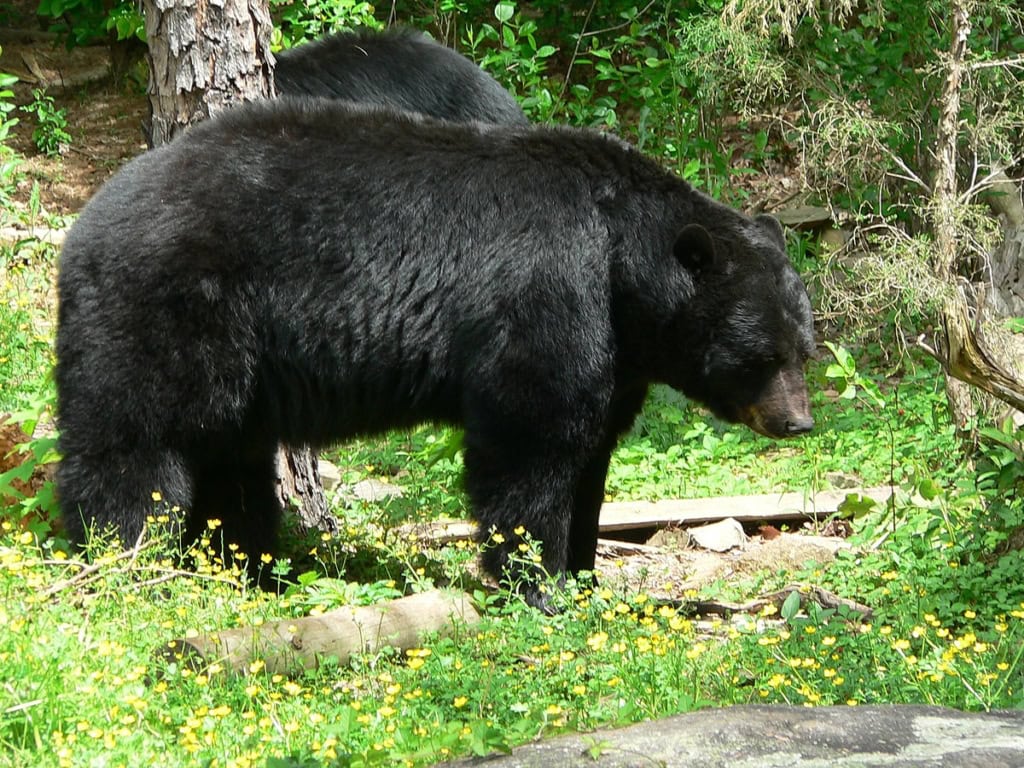
What Do We Know About Nova Scotia’s Black Bear Population?
by NatureNS Executive Director, Becky Parker Facebook Twitter Reddit Email Bears are a hot topic right now in Nova Scotia, in part, because the last few years have seen particularly
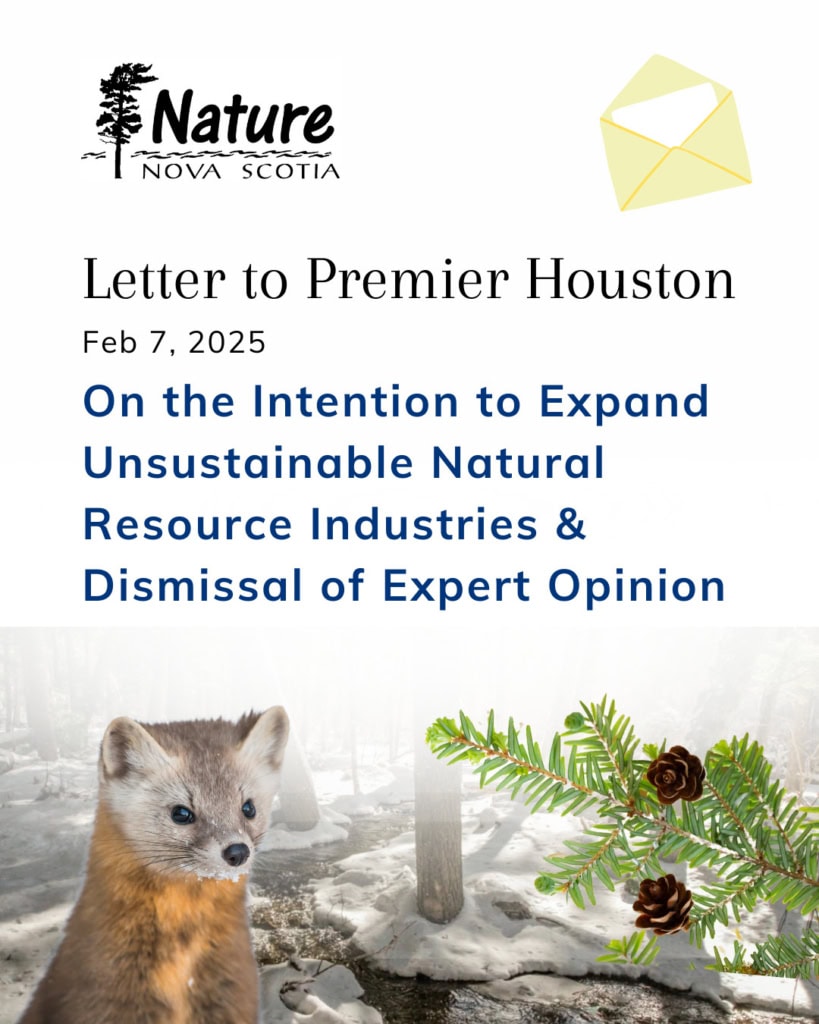
Nature Nova Scotia to Premier Houston: On Intention to Expand Unsustainable Natural Resources Industries & Dismissal of Expert Opinion
In late January, Premier Houston revealed a new intention to re-open long banned natural resource exploitation activities, citing pressures from potential American tariff, and described opposition to such activities as
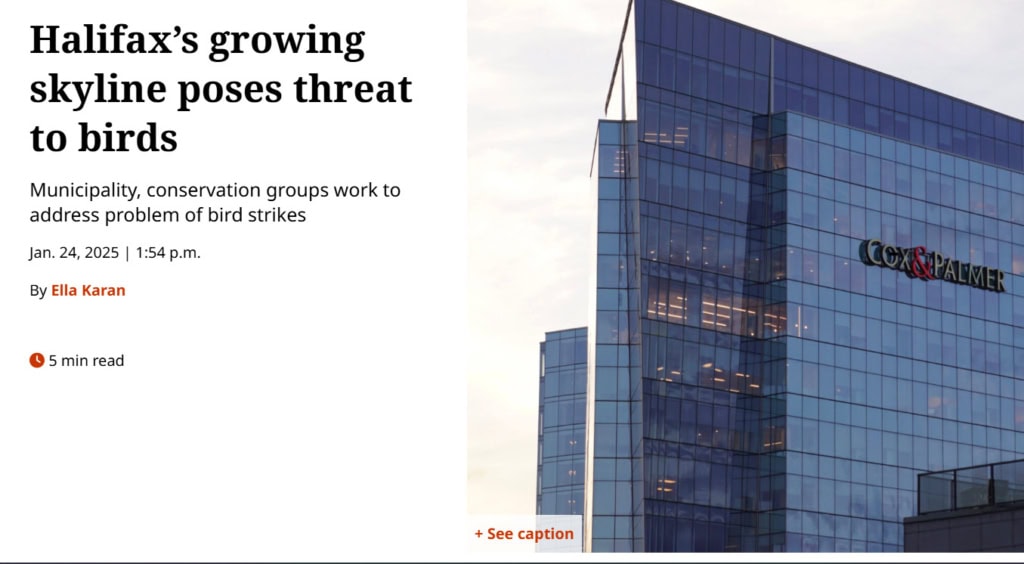
Nature Nova Scotia in the News: Halifax’s Growing Skyline Poses Threat to Birds, The Signal
Conservation Programs Coordinator Jess Lewis was interviewed recently by Kings BJH student Ella Karan about the need for better bird-friendly planning in our largest city. Here’s Ms. Karan’s finished feature:
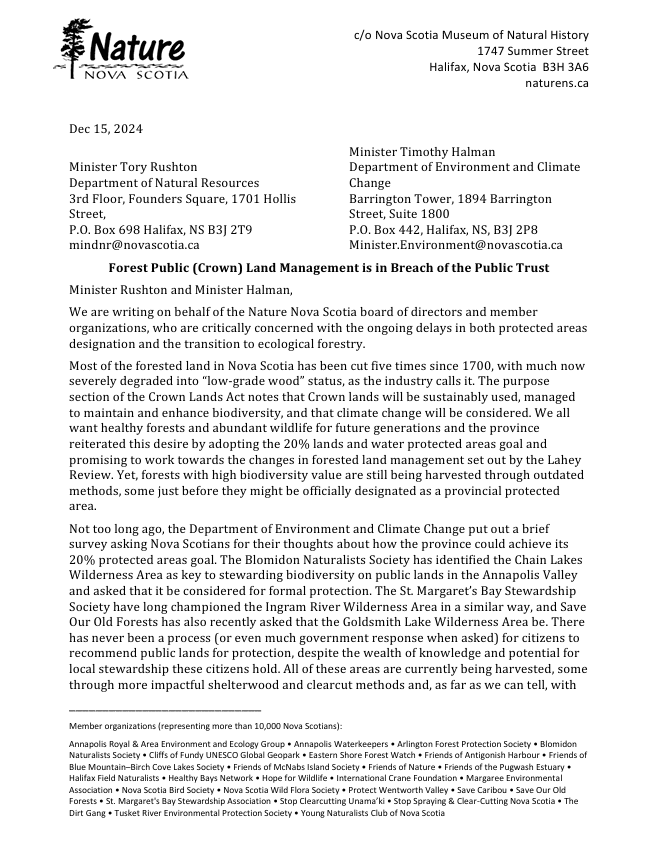
Nature Nova Scotia to Natural Resources and Environment: Start Working Together
Nature Nova Scotia President Bob Bancroft and Executive Director Becky Parker recently sent this letter to Minister of Natural Resources and Renewables Tory Rushton and Minister of Environment and Climate
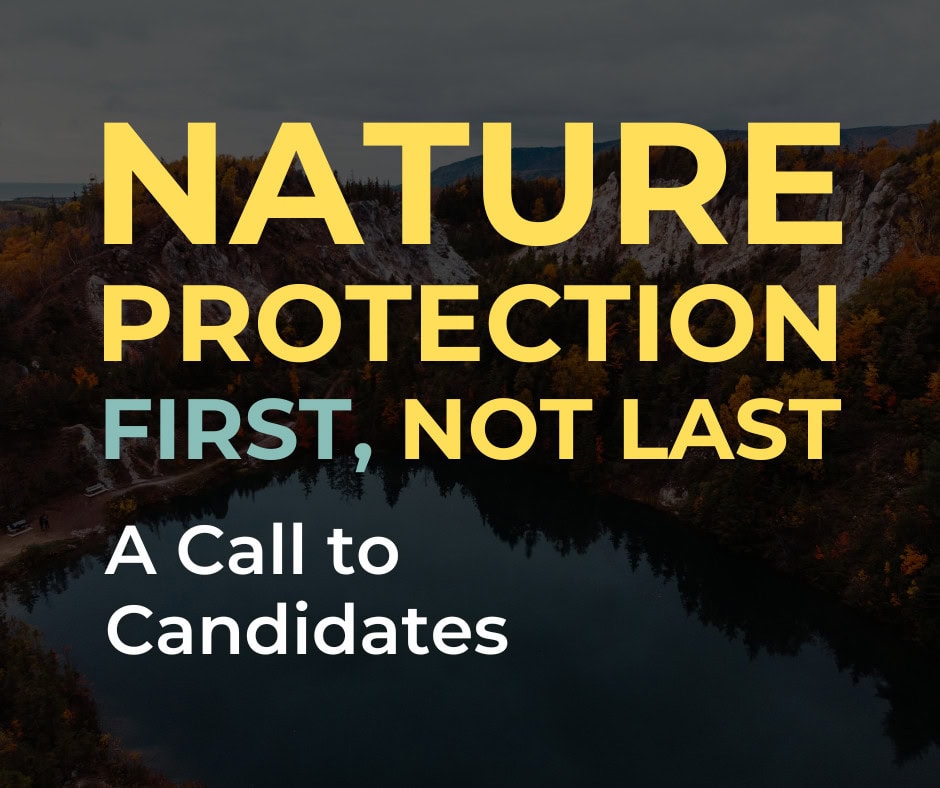
A Call to Candidates: Nature Protection First, Not Last
Nova Scotians are going to the polls this month to elect a government they hope will represent their values and get to work on addressing their concerns. Nature, unfortunately, has
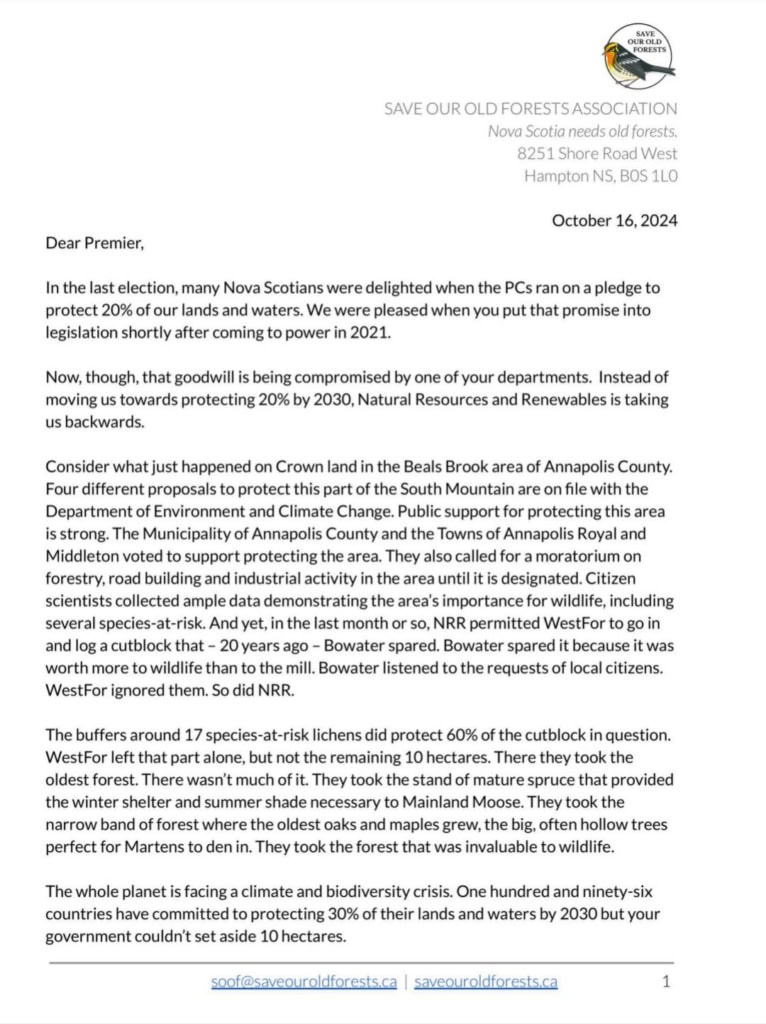
Open Letter to Premier Houston: Save What’s Left Of Our Forests
Nature Nova Scotia and many other nature groups recently signed onto this joint letter asking Premier Tim Houston to stop cutting in forests slated for protection, cutting in high biodiversity
Advancing Bird-Friendly Building Design for a Safer Future
It is an exciting time for birds in Halifax, Nova Scotia! On Thursday August 1st 2024, Jess Lewis, the Conservation Programs Coordinator of Nature Nova Scotia, and Dr. Amy Mui,
Halifax Bird Week
Join Bird Friendly Halifax for the second annual Bird Week! This year, birding walks will take place in 11 districts across HRM. We encourage citizens and decision-makers to take actions
Were Hiring!
We’re Hiring! Education and Outreach Assistant – 6 Month Position Nature Nova Scotia and The Young Naturalist Club are hiring an Education and outreach assistant for a 6-month term. April